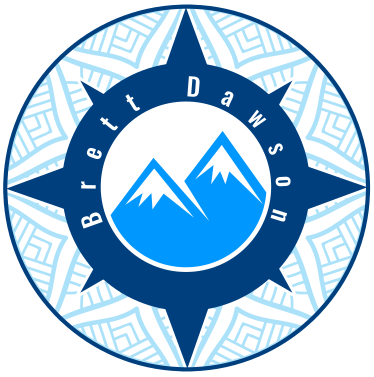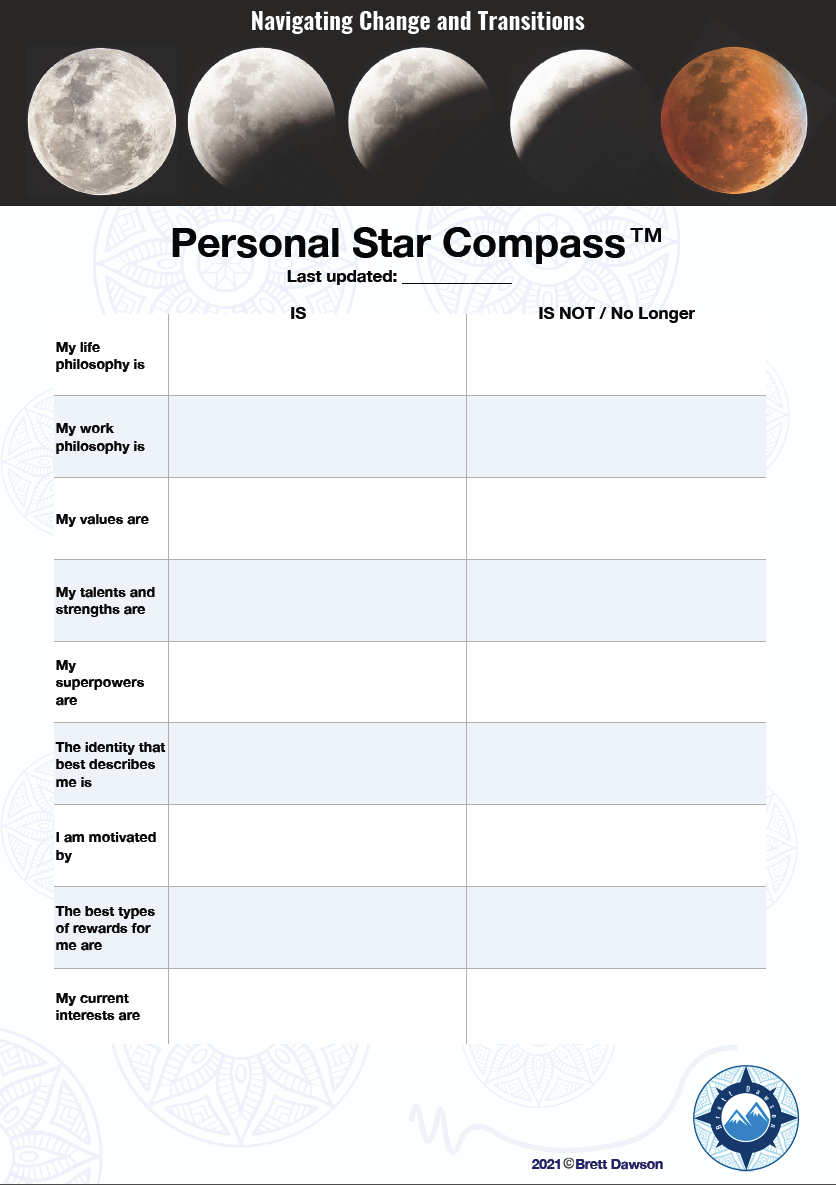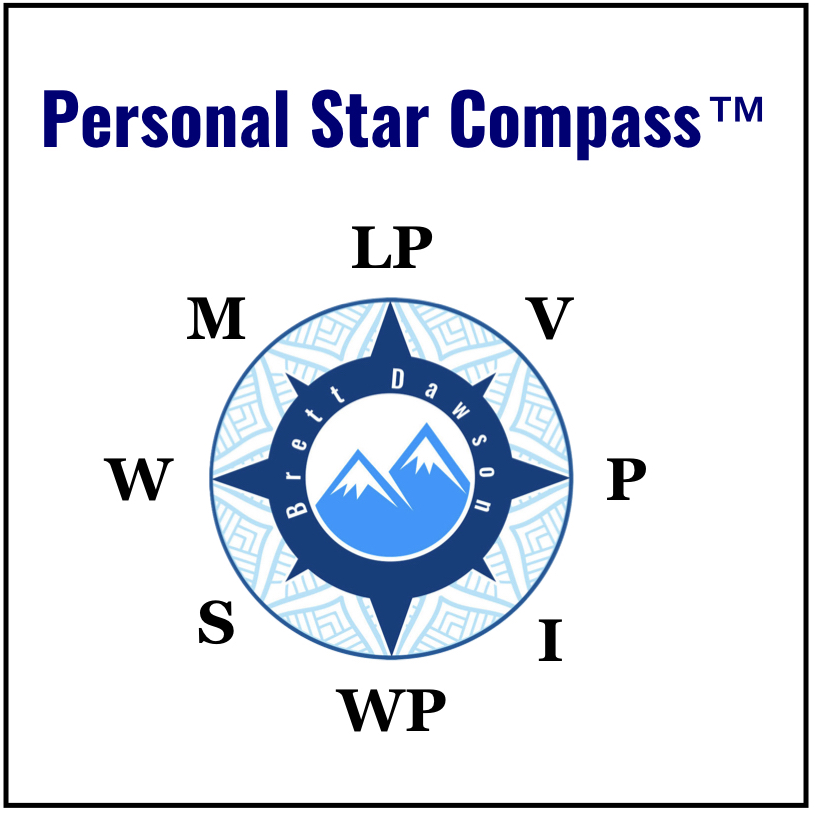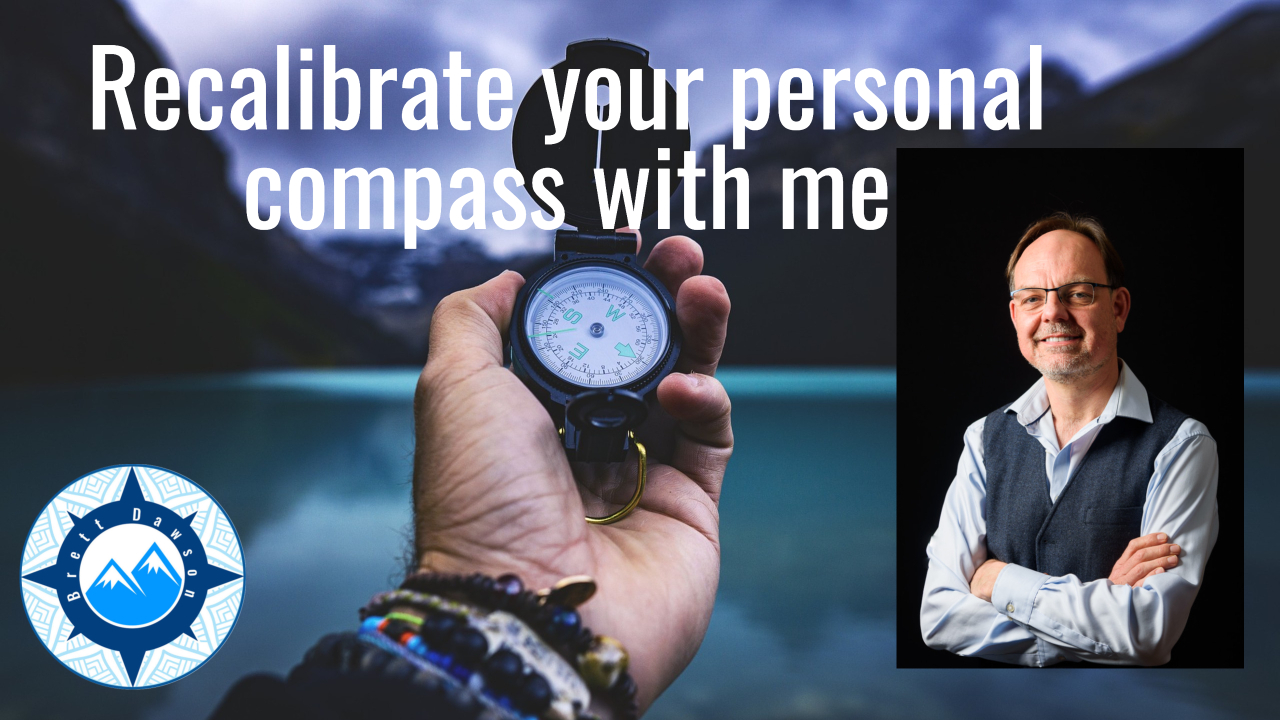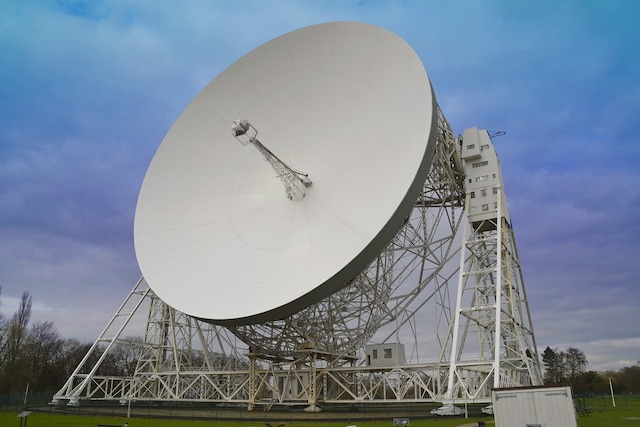Why you need to
RECALIBRATE
your personal compass regularly

Alignment drift leads to existential crisis
Whether it’s a life stage transition or just a shift in relative priorities, the effect is always the same – an alignment gap opens up between what you were interested in in the past and what you are interested in now. Quite often it happens quite slowly. I call this alignment drift and it’s the primary reason for the emergence of a dysphoric existential crisis in life.
Stages of life
As the years go by you will notice that your interests and priorities change. There’s plenty of philosophy about the various stages that human life can be divided up into, from the ancient Greeks (seven or ten stages) to more contemporary thinkers like Mark Manson (four stages). Mark suggests that problems arise when you get stuck in one of these stages and struggle to transition to the next stage. Many books have been published on the topic too, like The Human Odyssey by Dr Armstrong.

Interests change with time
My career has drifted over time as my interests changed. As a Chemical Engineer, I wanted to know how things worked and how it was possible to control chemical reactions and separate complex crude oil mixtures into final refined fuel products. Then I got interested in how investment decisions were made and which investments were better options than others. This lead me to an interest in strategy and the foresight of future trends. Every shift in interest resulted in me changing my job roles and working for different types of organisations, sometimes in different industries. As a young adult, I used to do a lot of rock climbing. Around the time I turned 30 I went on a 4-month sabbatical travelling through North America to climb as many routes in as many national parks as I could. I climbed volcanic tuff at Smith Rocks in Oregon, sandstone cliffs and desert towers in Utah, all the way to the towering granite walls in Yosemite. By the time I turned 40 I had a preference for climbing Via Ferrata routes in the Northern Italian Dolomites and skiing red and black routes on snow.
Alignment drift
Whether it’s a life stage transition or just a shift in relative priorities, the effect is always the same – an alignment gap opens up between what you were interested in in the past and what you are interested in now. Quite often it happens quite slowly. I call this alignment drift and it’s the primary reason for the emergence of a dysphoric existential crisis in life.
Chances are good that you’ve made some investments in your interests. If you like rock climbing you will have invested in some gear (ropes, carabiners, a lead rack of nuts and cams). If you’re into mountain biking you may have bought a bike. If and when your interests change you’ll find that you are left with stuff you don’t use anymore. These things can potentially anchor you to the past. The same alignment drift happens in a career. My chemical engineering design skills became less relevant by the time I was working in a corporate strategy role. My ability to deal with uncertainty by carefully crafting scenarios was more important than my ability to integrate the volume of a blast furnace hearth to calculate the anticipated drop in iron production following the installation of a new refractory lining. Stop and reflect for a minute on where you might be experiencing some alignment drift in your life or career right now.
Are you anchored to the past?
Alignment drift can creep up on you and erode your quality of life. Tension and unhappiness will start emerging when you realise that you are actually interested in something different and you no longer enjoy what you do. There is an uneasy tension associated with wanting to do something different to what you are doing right now. The bigger that gap is the more unrealistic the idea might seem that it is possible to make that kind of change in your life. Your past education and training can act as an anchor that holds you back. Your identity can also hold you back. My identity as an engineer was so deeply entrenched that it took me more than a year of unemployment stress to let go of it and accept that I was more of a strategist than an engineer. That’s when I found my first corporate strategy role.
Mid-life crises are ubiquitous and the new vogue
Alignment drift is inevitable. The insidious thing about alignment drift is that the longer you leave it the worse it gets – the bigger the gap becomes. If you keep ignoring the little inside voice that nudges you in a different direction you might discover that the gap is so big one day that it transmutes into an existential crisis. The common trope of mid-life crisis comes to mind. In fact, I had a friend who was complaining that she seemed to have arrived at a quarter-life crisis in her mid-twenties. I know others that have spoken of experiencing multiple ‘mid-life crises’ at different stages in their life. I believe alignment drift can happen at any time and any stage of life, and it can happen quite often. So what do you do when you realise you are experiencing a mid-life crisis or alignment drift? You recalibrate.
The need to recalibrate
Everyone has an internal compass, some call it a moral compass, some call it a sense of direction and others think of it as their core values and beliefs. A personal compass is all of these things and more. It’s about the way you think, what you value and where your heart lies. A personal compass is an integration between the heart and the mind. It encompasses why you do what you do and what types of decisions you make. The curious thing is that you think you know intuitively what your personal compass is all about but you might find that with the magnifying glass of reflection you’ll discover that maybe you’re not so in tune with your personal compass after all. The reason for this is alignment drift and the best way to correct this problem is to recalibrate your personal compass.
A personal compass is an integration between the heart and the mind. It encompasses why you do what you do and what types of decisions you make.
Download this template and use it to recalibrate your personal compass.
What is a personal compass?
So, Brett, I hear you asking, what is a personal compass? Think of a personal compass as a star. Not only is it your “North Star” or Southern Cross (depending on which hemisphere you live in and if you are astronomically minded like me) the gives you a sense of direction but it is also the ‘substance’ that you are made of – that enables you to radiate your brilliance into the inky blackness of bland insignificance associated with the vacuum of space.
Using a personal star compass
I like the metaphor of a ‘star compass’ because a star has points and each point can symbolise pointing in the direction of something that is important to you. These are things like your values, your interests, your identity and purpose, what motivates you and what your general philosophical beliefs are about life and work.
How to recalibrate
Recalibrating your personal star compass is the process of revisiting all the points on your compass, reflecting on them and refocusing on what is important to you at the time. By recalibrating you are identifying the alignment drift that has occurred and raising awareness about what needs to happen to get you back into alignment. This refocusing exercise improves your clarity and empowers your ability to make decisions and set intentions. Recalibrating frequently will help you catch alignment drift early and prevent significant gaps from emerging that may lead to feelings of existential crisis. Even when you are experiencing an existential crisis, mid-life crisis or have reached a crossroads in your life or career then the most important thing to do is to recalibrate your personal star compass right there and then.
The benefits of recalibrating
Recalibrating your personal star compass will give you the clarity you need to set realignment intentions and empower you to take the action needed to get you back into alignment and live a life that enables you to be the best version of yourself.
